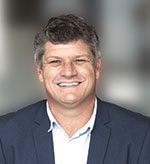
South Africa’s non-revenue water (NRW) is rising to unsustainable levels, with nearly half the water piped through the country’s infrastructure being lost through leaks, theft or nonpayment. “Water management is everyone’s problem,” says Jan-Willem van Huyssteen, director at infrastructure consulting firm AECOM.
“To a large extent, the business of water is broken. If we can somehow fix it, a great deal of the conflicts can be resolved, with more money available for solutions,” he explains. The cost of abstraction, treatment, and conveyance of water from source to tap is not being covered by the revenue being collected.
This results in budgetary constraints where many important new water infrastructure projects and continual infrastructure refurbishment and maintenance activities are delayed, further compounding the problem. “There is insufficient working infrastructure to serve our growing population. No business is sustainable if only half of the product being produced (like clean water) is being paid for,” he adds.

At present, NRW is South Africa’s biggest water use challenge. While there are many solutions available for alternative water sources, such as reuse and desalination, there is a need “to go back to the basics to conserve and manage our existing systems more effectively”.
Van Huyssteen believes that water can both spark conflict and create peace. “When people have unequal or no access to water, tensions can rise. However, eventually everyone realises that they have to work together. We saw this in the Western Cape with the looming Day Zero. Water management requires cooperation. It is in this spirit of collaboration that great solutions can be found.”
According to technical lead for Africa, Jonathan Schroder, there can be different levels of conflict within a water system. “Unfortunately not everyone in a water system is impacted equally. We are witnessing this in areas such as Johannesburg and Durban,” he notes. When reservoirs run low, residents on hills or further downstream are likely to experience water shortages first. There can also be conflict in a catchment area where people upstream are either polluting water or are withdrawing higher quantities, negatively affecting people living further downstream.
Then there are catchments that cross borders where one country’s use of water in that catchment area can negatively impact on another country’s water use. “Water also often flows towards money. Projects that are deemed economically viable are regularly prioritised over projects that provide less economic benefit or appear difficult to sustain financially,” comments Schroder.
Instead of calling for more dams and treatment plants, a good starting point is greater public awareness and education around the business of water, and also sustainable water conservation and water demand management. Unlike the electricity crisis, where one can install some solar panels on a roof, lack of access to water is a more complex problem.

Drilling your own borehole is a solution, but groundwater is often not a sustainable source due to licensing constraints, water quality issues, and a lack of access to suitable groundwater aquifers. Government remains the key provider of this service. “The general public can get involved in many ways to ensure a sustainable water supply. Firstly, we must hold our government accountable through the various political structures to ensure proper management of our resources, but then also take personal responsibility to conserve water, repair leaks on our properties, report leaks on public infrastructure and, most importantly, pay for our water,” says Schroder.
Van Huyssteen notes that even with full dams, there is not always infrastructure in place to transfer water from certain catchment areas to communities and treat it. “There are system constraints and system failures,” he points out. Alternative water sources are available in the form of groundwater, desalination and water reuse. However, there are complexities attached to these sources regarding the high cost of treatment, the location of the source in relation to the demand, and negative public perception in the case of treatment of wastewater for potable reuse. “Addressing NRW and leaks remains the lowest hanging fruit to ensure water security,” concludes Van Huyssteen.
For more information contact Lucy McLane, AECOM,
© Technews Publishing (Pty) Ltd | All Rights Reserved